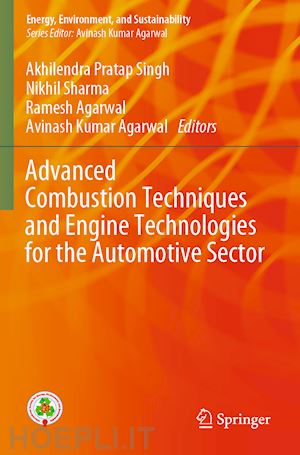Dr. Akhilendra Pratap Singh is working at IIT Kanpur. He received his Masters and Ph.D. in Mechanical Engineering from Indian Institute of Technology Kanpur, India in 2010 and 2016 respectively. His areas of research include advanced low temperature combustion; optical diagnostics with special reference to engine endoscopy and PIV; combustion diagnostics; engine emissions measurement; particulate characterization and their control; and alternative fuels. Dr. Singh has edited 7 books and authored 21 book chapters, 40 research articles in international journals and conferences. He has been awarded with ‘ISEES Best Ph.D. Thesis Award’ (2017), ‘SERB Indo-US Postdoctoral Fellowship’ (2017) and ‘IEI Young Engineer Award’ (2017). He is a member of numerous professional societies, including SAE, ASME, and ISEES.
Dr. Nikhil Sharma joined as a postdoctoral researcher at the division of Combustion and Propulsion Systems, Chalmers University of Technology, Sweden since 2018. Prior to that, he worked as a CSIR Pool Scientist at the Engine Research Laboratory, IIT Kanpur, India. During his doctoral at Indian Institute of Technology Kanpur, he was mainly involved in gasoline spray and particulate investigations from direct injection engines. His areas of research includes spray characteristics, exhaust gas aftertreatment system, particulate filters and renewable fuels. Till now, he has published more than 15 technical articles in international journals and conference proceedings.
Prof. Ramesh Agarwal is Professor in School of Engineering & Applied Science, Washington University, St. Louis, USA. He has received numerous prestigious awards including SAE International Medal of Honor (2015), AIAA Reed Aeronautics Award (2015), SAE Aerospace Engineering Leadership Award (2013), SAE Clarence Kelly Johnson Award (2009), AIAA Aerodynamics Award (2008), Royal Aeronautical Society Gold Award (2007), and ASME Fluids Engineering Award (2001) to name a few. He has published more than 500 peer reviewed journal/ conference papers and edited several books/ book chapters.
Prof. Avinash Kumar Agarwal joined IIT Kanpur in 2001. He worked at the Engine Research Center, UW@Madison, USA as a Post-Doctoral Fellow (1999 – 2001). His interests are IC engines, combustion, alternate and conventional fuels, lubricating oil tribology, optical diagnostics, laser ignition, HCCI, emissions and particulate control, and large bore engines. Prof. Agarwal has published 270+ peer reviewed international journal and conference papers, 35 edited books, 63 books chapters and has 7850+ Scopus and 11900+ Google scholar citations. He is associate editor of ASME Journal of Energy Resources Technology. He has edited “Handbook of Combustion” (5 Volumes; 3168 pages), published by Wiley VCH, Germany. Prof. Agarwal is a Fellow of SAE (2012), Fellow of ASME (2013), Fellow of NASI (2018), Fellow of Royal Society of Chemistry (2018), Fellow of ISEES (2015), and a Fellow of INAE (2015). He is recipient of several prestigious awards such as Clarivate Analystics India Citation Award-2017 in Engineering and Technology, NASI-Reliance Industries Platinum Jubilee Award-2012; INAE Silver Jubilee Young Engineer Award-2012; Dr. C. V. Raman Young Teachers Award: 2011; SAE Ralph R. Teetor Educational Award -2008; INSA Young Scientist Award-2007; UICT Young Scientist Award-2007; INAE Young Engineer Award-2005. Prof. Agarwal received Prestigious Shanti Swarup Bhatnagar Award-2016 in Engineering Sciences.











